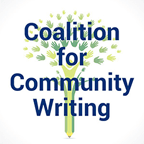Submissions Guidelines
Submissions for the articles section of the journal should clearly demonstrate engagement with community literacy scholarship, particularly scholarship previously published in the Community Literacy Journal. The editors seek work that pushes the field forward in exciting and perhaps unexpected ways. Case studies, qualitative and/or quantitative research, conceptual articles, etc., ranging from 20-25 manuscript pages, are welcome. If deemed appropriate, we will send the manuscript out to readers for blind review. You can expect a report in 16 weeks. When authors go through the submission process, they will be asked to sign a license to publish agreement. Authors will retain copyright of their manuscript.
The CLJ also welcomes manuscripts for three sections that are reviewed in-house:
Community Literacy Project and Program Profiles (8-12 pages) will discuss innovative and impactful community-based projects and programs that are grounded in best practices. We encourage community-based practitioners and non-profit staff to submit for this section. Profiles should draw on community literacy scholarship, but they are not expected to have the extended lit reviews that are customary in the articles section of the journal. If you are a community member wanting to submit, and it is your first time writing for an academic journal, we are happy to offer mentorship and answer questions. Pieces co-authored by multiple stakeholders in a project are also welcome. Please submit using our online submission system. Contact the Project and Program Profiles Editor, Jasmine Villa, with questions at jvilla@esu.edu. Issues in Community Literacy (8-12 pages) will offer targeted analysis, reflection, and/or complication of ongoing challenges associated with the work of community literacy. Potential subjects for this section include (but are not limited to): building/sustaining infrastructure, navigating institutional constraints, pursuing community literacy in graduate school, working with vulnerable populations, building ethical relationships, realizing reciprocity, and negotiating conflicts among partners. We imagine this as a space for practitioners to raise critical issues or offer a response to an issue raised in a previous volume of the CLJ. We encourage community-based practitioners and non-profit staff to submit for this section. If you are a community member wanting to submit, and it is your first time writing for an academic journal, we are happy to offer mentorship and answer questions. Pieces co-authored by multiple stakeholders in a project are also welcome. Please submit using our online submission system. Contact the Issues in Community Literacy Editor, Michelle LaFrance, with questions at mlafran2@gmu.edu. Coda: Community Writing and Creative Work is a section of CLJ dedicated to supporting writers who are involved in projects relating to community engagement and activism, to preserving the work that ensues from community writing projects, and to expanding the kinds of writing published in academic journals. We invite creative work in any genre in Global Englishes and ask that it is accompanied by a personal reflection that tells how the piece came to be. Please visit our submission site for more information.Manuscript Format: The MLA Style, 8th ed.
- We discourage the use of End Notes, preferring integration of information within the article's text; when absolutely unavoidable, use End Notes, not footnotes
- Images need to be at least 300 DPI for printing
- Images will need some form of attribution and acknowledgment
- Use pseudonyms and/or anonymous information to protect the privacy of your research sources
- Minimize the use of parentheses and parenthetical phrases
- Have permission to quote from students’ or community members’ work.
Permissions
We follow the NCTE Guidelines for “Permissions and Consents." There are two kinds of permissions:- Permission to reproduce published work. For previously published work–writing, artwork, photography–authors are responsible for fees charged for reprinting copyrighted material and must obtain written permission.
- Permission from contributors to your article. Research involving human subjects, samples of student writing, artwork, photographs, observations of teachers and their classrooms–all require consent to publish before they can be used in your published work. Where applicable, we require an IRB approval letter before publication.
Submissions Preparation Checklist
- The submission has not been previously published, nor is it before another journal for consideration (or an explanation has been provided in Comments to the Editor).
- The submission file is in Microsoft Word, RTF, or TXT document file format.
- Adherence to all Format Guidelines, above.

